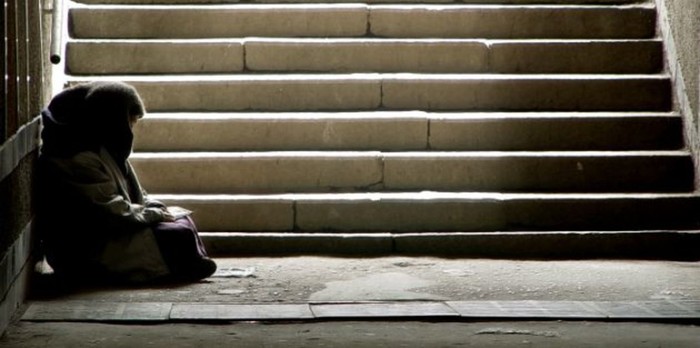
“The girls sleep on the bunks on the right wall and the boys sleep on the left,” Jessica, the volunteer coordinator of the teen shelter, explained as we walked through the room and into the hall. “Sometimes we have sixteen kids, but usually it’s ten or twelve. The volunteer on duty sits in this chair to make sure everyone stays in their own bunk.”
“Most of the kids take the bus to school in the mornings, but right now we have one girl who can’t leave campus. Her former pimp knows where she goes to school, she’s been giving the police information to help them apprehend him. So, for her safety, she is only allowed to leave with a staff member or the police.”
“That’s so sad,” I replied.
“Yeah.” Jessica turned to face me. “All of the kids have a story, and each story is uniquely tragic. Jon’s parents are homeless, and he’s here because he doesn’t like being at the adult homeless shelter. Robert’s brother is in jail, and he doesn’t have anyone else to live with. Pauline and Priscilla are sisters that were horribly abused by their parents. They’re here temporarily, waiting for grandparents from another state to come sign papers and pick them up—”
When the tour ended, I walked back to my car with a heavy heart. I unlocked the door, sat down, and cried.
These kids were too young.
Too young to be abused.
Too young to be abandoned.
Too young to be prostituted.
Too young to be homeless.
Often we associate child poverty with other countries like India or Uganda. But all of this goes on in a normal, beautiful city in the U.S. Everyday, children in AMERICA—in my state!—are hungry, lonely, battered, and on the streets. And, until that moment, I never knew.
My entire life, I had lived my happy little suburban life while teens only thirty minutes away didn’t know where they would sleep. My biggest decision each morning was whether to get up a little earlier to stop at Starbucks. These kids had a whole different set of questions: Would they eat that day? How would they shower and look normal at school? How would they do their homework? What if their friends found out they were homeless?
A pretty stark contrast.
But what would I do with all this new information?
Honestly, part of me didn’t want to do anything. I didn’t want to go back; I wanted to curl up and hide. I wanted to run away from the sadness and pain, run back to my comfortable home and forget such misery existed.
But Jesus didn’t stay comfortable. He sought the hurting, sick, and homeless. He sought the people with burdens and scars. So, shouldn’t we seek to minister to those people too? Why don’t we?
Why don’t I?
Frankly, I think it’s because it’s hard. It’s messy and inconvenient. It’s dirty and uncomfortable. And it hurts to see people in such difficult situations. Besides, I typically try to stay as far away from trouble as possible.
But when I signed up to be a Christian, I signed up to be crucified with Christ. I agreed to serve, to love my neighbor—homeless teens and anyone else—as I loved myself (Mark 12:35). Since I don’t ignore myself when I am hurting, I shouldn’t ignore them.
Jason Carr in his book, Orphan Justice, shares:
“The gospel always calls us out of ourselves and our self-constructed world. It calls us to care, to sacrifice, and to reach out to orphaned and vulnerable children and become the face of Jesus.
Jesus came and died for those with HIV/AIDS, no matter how they got the disease. He died for those living in poverty. He died for the teenager who is selling her body tonight so she doesn’t starve. He died for the young woman facing an unplanned pregnancy. He died for every little boy and girl who is orphaned. He died for every angry, confused, and scared boy and girl in foster care whose earthly possessions fit inside one black trash bag.
Not only did Jesus die for these orphaned and vulnerable kids, but he also defeated death, hell, and the grave to rise again. He now offers them the glorious gift of the gospel through us.”[i]
If we just look around, we will find children everywhere who need to see Jesus through His servants. So the question is: Are we ready to get out of our comfortable lives and be the hands and feet of Christ?
[i] Johnny Carr. Orphan Justice: How to Care for Orphans Beyond Adopting. Nashville: B&H Publishing Group, 2013.









